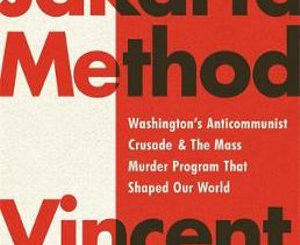
Review: The Jakarta Method
The message was: go silent or blood will run in the streets and across the jungles.

The message was: go silent or blood will run in the streets and across the jungles.
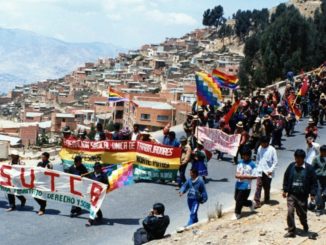
Benjamin Dangl’s The Five Hundred Year Rebellion: Indigenous Movements and the Decolonization of History in Bolivia is a vitally important book. Not only scholars and activists interested in the Bolivian struggles, but a wide range of oral historians, ethnographers and others will find the author’s pursuit of multiple hidden histories useful in their own work.
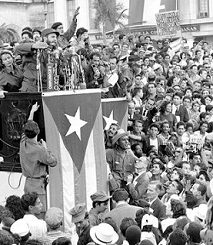
Here is a volume offering great surprise, at least to this presumably well-educated reader, deeply sympathetic to the Cuban Revolution since its inception. Perhaps the cult of the personality around Che and Fidel is the reason for an absence of real social history on this vital subject?
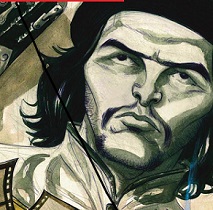
No iconic, rebellious image of anyone from the 1960s, it is safe to say, looms larger than that of Che Guevara, even today, so long past his death. Only Bob Marley’s face will be seen on nearly as many t-shirts around the planet, but signifying a different set of rebellions.

Source: Yes Magazine
For hundreds of years, he’s fought tax injustice, tyranny, and the seizure of the commons. Why we still need him today.
In the late 1950s, a handful of peaceniks protested mandatory ROTC on a major U.S. university campus by carrying signs and wearing green buttons. Back when The Adventures of Robin Hood was a giant hit on television, most everybody knew that green was Robin Hood’s color and that Robin could not side with the king’s soldiers or future soldiers of any empire. Five decades later, the lead protagonist of a cult favorite American cable show, Leverage, announces at the beginning of each episode: “The rich and the powerful take what they want; we steal it back for you.”
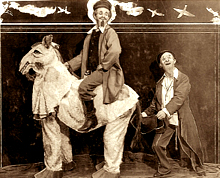
The world of Yiddish theater in its glory days on Second Avenue in Manhattan of the 1910s-1940s seems like one more leftwing Jewish tale of another faraway universe. However, the productions have not ceased entirely and various forms of translations bring the theater to new audiences. What we've lost more than anything is the vernacular qualities, the ways in which this theater drew upon various forms of entertainment and edification from the shtetl to the immigrant ghetto, and how fully it engaged an excited and sometimes infuriated Jewish public.
Copyright Toward Freedom 2019